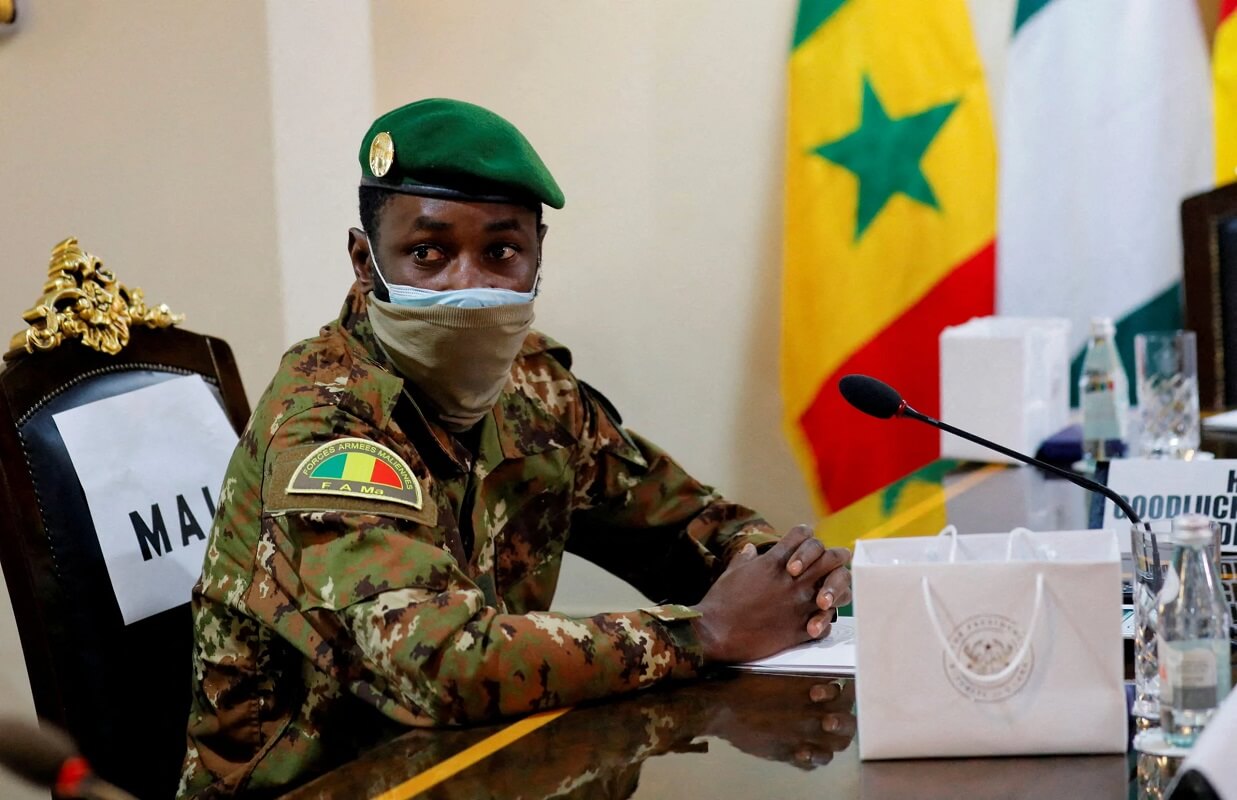The Malian junta claims to have thwarted a coup by “Western-backed” soldiers last Wednesday, though it offered no evidence to corroborate its allegations or details on which Western countries sponsored the attempted coup.
It says it has increased security measures in all areas, particularly at border checkpoints on roads leading to the capital city of Bamako. Moreover, it claimed to have already detained people, though a number was not provided.
#Mali triple coup? - Military junta has arrested several soldiers and officers accusing them of an attempted coup on May 11 - 12th claims the attempt to overthrow the junta that was "backed by a Western state" pic.twitter.com/4dVovauQ3g
— Evelyn Tremble (@DrumChronicles) May 17, 2022
Government spokesperson Colonel Abdoulaye Maiga, said on state television that the alleged offensive targeted to “hinder - or even annihilate - the substantial efforts to secure our country and return to a constitutional order.”
Although it has not named the country behind the alleged coup, the junta’s latest claims come amid increasing international and regional condemnation as well as fraying ties with France.
On Sunday, Mali announced its withdrawal from the G5 Sahel force with Mali Mauritiana, Chad, Niger, and Burkina Faso, blaming a lack of progress in the collective battle against Islamist groups.
Meanwhile- Mali’s military junta announce withdrawal from the regional G5 Sahel force (launched in 2017 by Burkina Faso, Chad, Mali, Mauritania, and Niger) pic.twitter.com/pDJ3JcqEby
— Samira Sawlani (@samirasawlani) May 15, 2022
Similarly, at the start of the month, the junta unilaterally terminated the Defense Cooperation Treaty with France and the Status of Forces Agreement (SOFA) with the European Union.
This has paved the way for the expulsion of French troops from Mali after nine years, alleging “espionage,” “subversion,” and frequent violations of its air space by the French army.
France, meanwhile, has said that Mali’s increasing isolation reflects the junta’s push to remove any obstacles in its way to establishing an authoritarian regime with the help of Russian paramilitaries.
French President Emmanuel Macron has previously said: “We cannot remain militarily engaged alongside de-facto authorities whose strategy and hidden aims we do not share.”
While Mali insists that the Kremlin-linked Wagner Group, which has well over 1,000 soldiers stationed in Mali, is merely providing intelligence reconnaissance. However, rights groups and international actors have alleged that they are participating in gross human rights violations, even against unarmed civilians. For instance, Human Rights Watch claims that Malian troops and Russian paramilitaries killed up to 300 civilians as part of a supposed counterterrorism operation in the town of Moura back in March.
These operations have done little to curtail rampant terrorism in the country and have in fact increased instability across the Sahel region, including in neighbouring Burkina Faso and Niger.
The Malian junta, led by interim President Col. Assimi Goïta, first came to power in August 2020 after overthrowing President Ibrahim Boubacar Keïta and Prime Minister Boubou Cissé, after which it agreed to an 18-month transitional period, at the end of which it would hold an election in February 2022.
However, nine months later, in May 2021, Goïta detained interim President Bah N’Daw and Prime Minister Moctar Ouane and declared himself the president.
Subsequently, this February, the National Transitional Council voted 120-1 in favour of allowing the transitional government to remain in place for up to five years before returning the country to democratic rule.
This severe delay in holding elections and refusal to meet its earlier commitments has not only soured relations with France and other Western countries but also with the African Union and the Economic Community of West African States (ECOWAS), both of which have suspended and sanctioned the Malian junta. ECOWAS, for instance, has called the revision of the transition timeline a “joke.”
Rather than pressuring the junta to move the country back to democracy, these measures have instead pushed it even more inward, as evidenced by its latest unsubstantiated allegations of a Western coup attempt.

